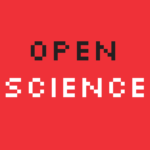An Introduction to “Food Ethics” or “Ethical Eating”

Firstly, Food Ethics is inextricably linked to disciplines such as environmental science, ecology, economics, and, surprisingly, even earth science. Moreover, Food Ethics necessarily invites interdisciplinary inquiry. This list of key texts shows just how interdisciplinary this field is: as one can see, research in this discipline draws from history, sociology, philosophy, natural science, and even bioethics (another example of fruitful interdisciplinary effort). In effect, Food Ethics broadens the scope of STEM, thereby producing its exciting upgrade, “STEAM,” which is characterized by the inclusion of the Arts. Food Ethics, as the name suggests, draws especially heavily from philosophy. It focuses on how food is produced, how it is consumed, and what we are prepared to call “food.”
Too often, when I speak about Food Ethics to students, they immediately assume that it has to do with frugal living and relinquishment. They assume that ethical eating reduces quality of life. Very few students note that the discipline also addresses how food is produced today. In what follows, I aim to address common misconceptions about this discipline—misconceptions I am privy to as an educational researcher who works with K-12 students.
Food Ethics: Common Misconceptions
Many students assume that vegetarianism and veganism are the most ethical eating practices. As a result, they regard Food Ethics as a vehicle for promoting the avoidance of meat-eating. This, however, is not true. The discipline does focus a great deal on the ethics of meat-eating, but its concerns and applications are more wide-ranging and eclectic.
The discipline does not prescribe any particular kind of diet. It is much too nuanced to be reduced to these aspects alone. Instead, it examines the moral and political consequences of one’s food preference. Inevitably, therefore, the discipline focuses on the environmental consequences of one’s eating choices, the labor relations that underlie the production and consumption of food, as well as the resources used to produce food. Unsurprisingly, the discipline has shed light on the impunity with which the meat industry operates. Yet, this has also resulted in its pigeonholing: the discipline is unfairly regarded as an outcome of anti-meat propaganda. However, Food Ethics really only aims to show that the production and consumption of food are seldom, if at all, subjected to moral examination.
While the meat industry is fraught with animal cruelty, the production of crops, vegetables, fruits, and grains is also marked by exploitative land and labor practices. For instance, studies of Food Ethics have shown the extent to which profit-driven farmers and agriculturalists have exploited good land and fertile soil. Therefore, it is inaccurate to treat this discipline as a tirade against meat consumption. Of late, the concerns embodied by Food Ethics have been embraced by economists, too. Analyses of famines, poverty, and inequality now involve a critical study of the production, unequal distribution, and wastage of food. Most notably, food ethicists have also condemned cruel, unethical animal testing. In doing so, they have questioned the very methodology responsible for the humongous success of the applied sciences. Industries have been forced to develop other means to screen products for risks and side effects. For example, Food Ethics lets us examine the cosmetic industry, the canned food industry, the pharmaceutical industry, and a host of other industries that have relied on animal testing for commercial viability and success. We must remember that these are celebrated industries. We often cite developments in these fields as proof of technological advancement, effectively overlooking the exploitative practices that enable these industries to thrive.
Food Ethics, STEAM, and Science Communication
Food Ethics calls for critical self-examination, and this is why STEAM is an upgrade to STEM. The Arts, more often than not, are self-critical, and STEAM education will certainly impress upon learners and educators the importance of scrutinizing one’s chosen method of inquiry. By bridging the gap between the Arts and the Sciences, Food Ethics enables us to address the concerns raised by other eclectic disciplines, such as “Philosophy of Science” and “Sociology of Science”. That is, Food Ethics invites students and researchers to examine the scientific method more closely. For instance, it enables us to better understand what it means to have to have a scientific outlook about nutrition. This, in turn, is bound to make one a better science communicator. By understanding the social, political, and moral implications of the scientific method, one can present a more accurate picture of science to the general public. Science communicators with a strong background in Food Ethics are more likely to encourage the general public to think conscientiously about food. More interestingly, Food Ethics is also likely to introduce students, researchers, and the general public to disciplines such as sociology and anthropology. In sum, the discipline allows one to observe the interplay between food and ethics and spreads the gospel of scientific thinking beyond the experiment and into the real word.
Dennis Wesley is an independent educational researcher and budding blogger, whose interests include STEM and Humanities education, especially interdisciplinary practices and methods. Learn more on Dennis’ SciReach profile.









